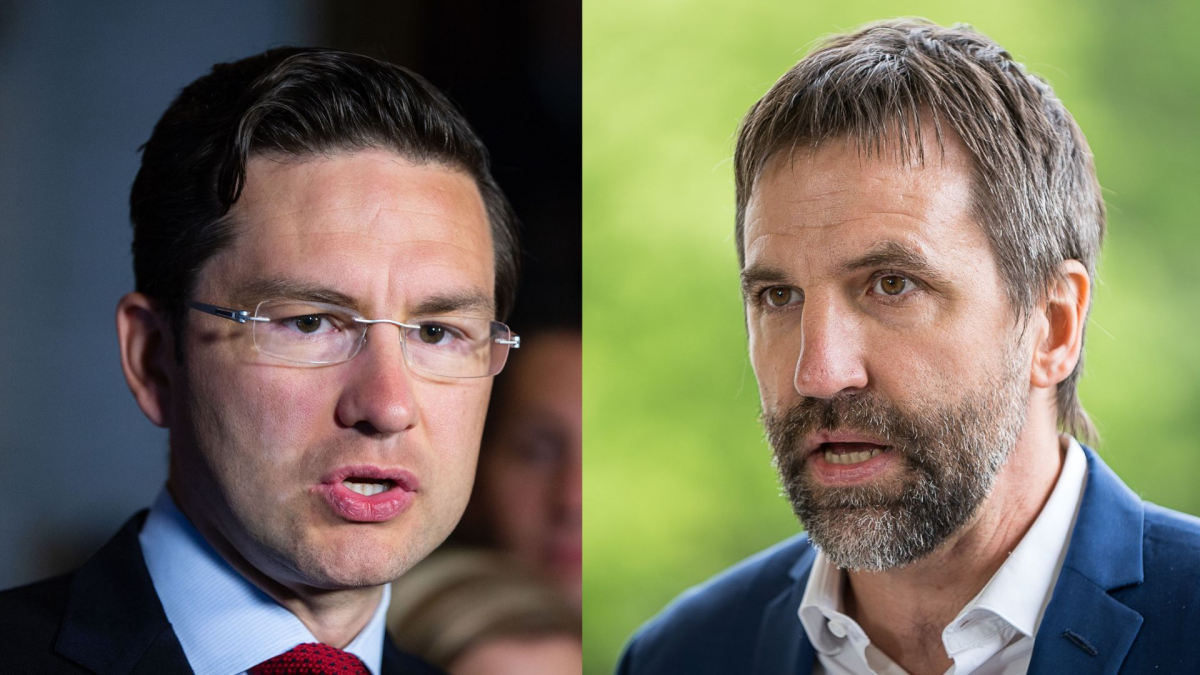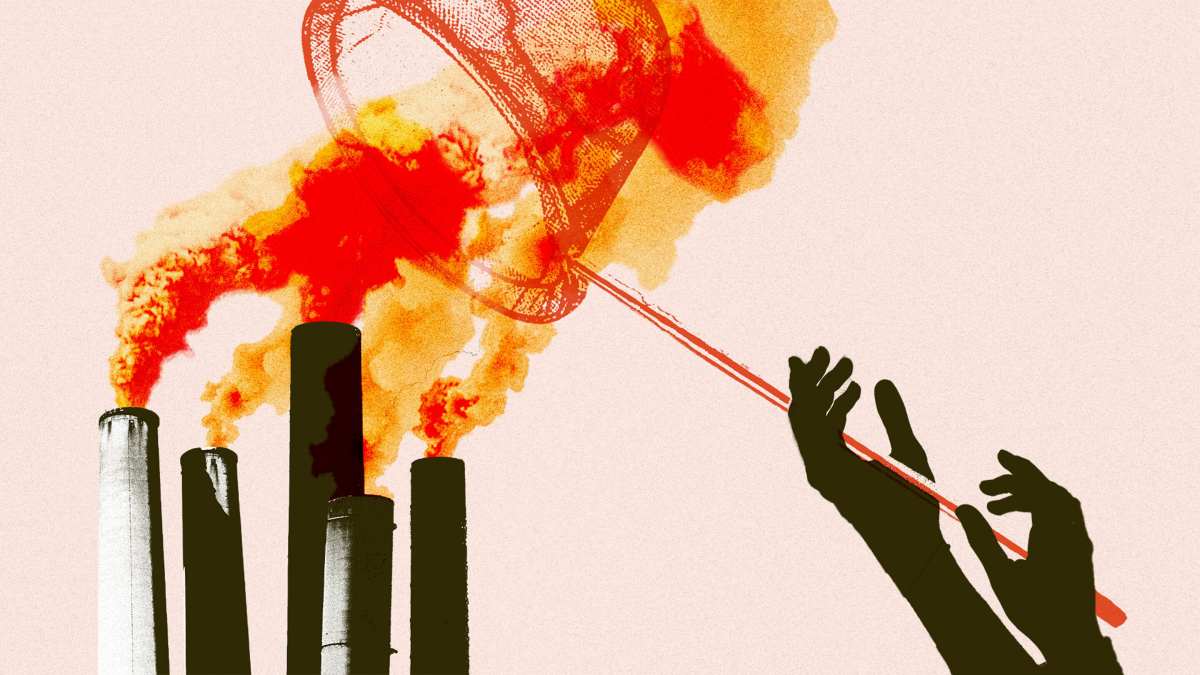
Inside the political ‘tug of war’
When it comes to climate change, the Liberals are a hard group to figure out.
On the one hand, they’re responsible for some major strides in Canadian climate policy, from carbon pricing to Indigenous-led conservation projects to pushing for a shift to more electric vehicles. They regularly name global heating as an urgent crisis and vow to take on climate change with a “whole-of-government” approach.
On the other hand, they continue to expand the country’s oil and gas industry in an era when burning fossil fuels — the main driver of climate change — has to stop if we have any hope of preserving our planet. The prime minister argues Canada can meet its climate goals and keep its fossil fuel business growing, too.
But the person who bears the brunt of Canada’s climate fumbles — and its wins — is Environment and Climate Change Minister Steven Guilbeault. The activist-turned-politician has come a long way from his Greenpeace days scaling the CN Tower. He’s now a formidable player in global climate policy — or an incrementalist slow-walking Canada’s duty to clean up its act, depending on who you ask.
John spoke with Guilbeault recently to learn more about what motivates the federal cabinet minister and how he walks the fine line between action and compromise.
“For better or worse, politics is a tug of war over allocating resources,” John tells me. “Who gets what is a fundamental question, meaning cabinet ministers are caught between their own interests, the government's broader plans and responding to constituencies.”
For Guilbeault, his clout as a climate activist and a Quebec MP make him a valuable figure for the Liberals.
“But this doesn't give him unilateral power on climate issues,” John adds. “Finance Canada, and (Finance Minister Chrystia) Freeland specifically, see themselves as the responsible adults in the room who say no to other departments.” Just as Guilbeault has to answer to a well co-ordinated climate movement, he explains, Freeland wants to respond to stakeholders, too — like Bay Street bankers invested in fossil fuels, for example.

There’s no question Guilbeault gets criticism from all sides. Oil and gas boosters worry his climate policies will saddle their industry with new rules and eat into their bottom line. Environmentalists argue those same policies don’t go far enough and point to the approval of Canada’s first deepwater oil project, among other decisions, as a sign the former climate campaigner has become a government cog.
But, John points out, “there is evidence he can be pushed” to advance a more planet-friendly agenda. Take last year’s United Nations climate conference as an example. At COP27, Canada made a “subtle shift” in its stance on fossil fuels, John explains — no small feat for a major oil-producing country. Though Canada initially refused to join a call to phase out fossil fuels, the country later backed a weakened statement urging the world to phase out its dependency on fossil fuels.
It’s a small step, John acknowledges, but it happened “after tremendous pressure from environmentalists.” Their efforts put a spotlight on the corrosive impact of fossil fuel companies at the conference and created a space for Guilbeault to shift the country's position, he says.
Still, the battle is harder at home, where a powerful oil and gas industry regularly seeks to sway government policy. For now, Guilbeault is working on a few more “big-ticket items” to make good on Canada’s climate targets, John explains. These include regulations to create a clean power grid and the details of a cap on greenhouse gas emissions from the oil and gas industry.
“These are tricky because we're talking about transforming industrial sectors with entrenched interests,” he says. In order to create climate policies that pack a punch, Guilbeault will have to identify openings for change or create them himself, he adds. One opportunity? Comparing us to our next-door neighbour.
The U.S. Inflation Reduction Act, which invests heavily in climate action, “is probably the biggest opening Guilbeault has now because Canada is falling behind the United States and will want to move quickly to align our policies so that we don't lose investment,” he says.
Whatever Guilbeault’s next policy play is, public pressure is a helpful bargaining chip at the cabinet table, John adds.
“The real test is how far can the climate movement push him to make domestic policies like the oil and gas emissions cap as strong as needed. There's a real risk policies could be watered down without the efforts of environmentalists.”
More CNO reads

Canada promises to partner with Indigenous Peoples to protect oceans and other waters. The announcement came at the start of a global summit on ocean conservation in Vancouver, Rochelle Baker reports.
Is the urban-rural divide growing? Max Fawcett talks to a Saskatchewan farmer about how the carbon price is playing out in smaller communities on the latest episode of Maxed Out. Listen here.
A new disability benefit is on its way to making “major difference” for working-age Canadians. MPs voted unanimously to pass the first federal guaranteed income supplement for working-age Canadians with disabilities, Natasha Bulowski reports. Now, it’s on to the Senate.
Canada’s under pressure to ban deep-sea mining. Scientists and environmental organizations are pushing the federal government to declare a moratorium as an international marine conservation summit gets underway in Vancouver, Rochelle Baker reports.
Don’t like Meatless Mondays? Too bad. So says the University of Victoria's executive chef, who is bringing a full plant-based menu to the school once a week, Marc Fawcett-Atkinson reports.
Looks and tastes like salmon — but it never swam a day in its life. A Toronto-based company is creating plant-based salmon filets that could be served in select North American restaurants by early next year, Morgan Sharp reports.
Healing lodges, designed for Indigenous offenders, need a makeover. That's what prison reform advocates are saying after the recent suicide of a young inmate, Matteo Cimellaro reports.
Justin Trudeau can’t ignore Quebec’s Islamophobia problem any longer. The prime minister chose human rights activist Amira Elghawaby to become Ottawa's special representative on combating Islamophobia. Now she's facing backlash for past comments, but all Elghawaby has ever done is tell the truth about her experience, and that of so many Muslim women in Quebec, writes columnist Max Fawcett.


